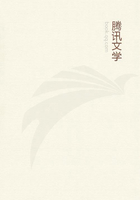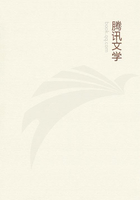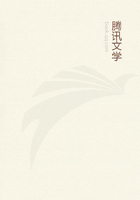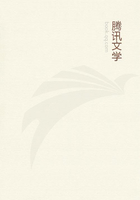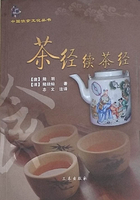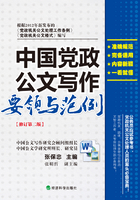This is the time when the very things which till then had been communicated, but never exchanged; given, but never sold; acquired, but never bought -- virtue, love, conviction, knowledge, conscience, etc. -- when everything, in short, passed into commerce. It is the time of general corruption, of universal venality, or, to speak in terms of political economy, the time when everything, moral or physical, having become a marketable value, is brought to the market to be assessed at its truest value.
How, again, can we explain this new and last phase of exchange -- marketable value at its third power?
M. Proudhon would have a reply ready-made: Assume that a person has "proposed to other persons, his collaborators in various functions", to make a marketable value out of virtue, love, etc., to raise exchange value to its third and last power.
We see that M. Proudhon's "historical and descriptive method"is applicable to everything, it answers everything, explains everything.
If it is a question above all of explaining historically "the genesis of an economic idea", it postulates a man who proposes to other men, " his collaborators in various functions", that they perform this act of genesis and that is the end of it.
We shall hereafter accept the "genesis" of exchange value as an accomplished act; it now remains only to expound the relation between exchange value and use value. Let us hear what M. Proudhon has to say:
"Economists have very well brought out the double character of value, but why they have not pointed out with the same precision is its contradictory nature; there is where our criticism begins....
"It is a small thing to have drawn attention to this surprising contrast between use value and exchange value, in which economists have been wont to see only something very simple: we must show that this alleged simplicity conceals a profound mystery into which it is our duty to penetrate....
"In technical terms, use value and exchange value stand in inverse ratio to each other."If we have thoroughly grasped M. Proudhon's thought the following are the four points which he sets out to establish:
Use value and exchange value form a "surprising contrast", they are in opposition to each other.
Use value and exchange value are in inverse ratio, in contradiction, to each other.
Economists have neither observed not recognized either the opposition or the contradiction.
M. Proudhon's criticism begins at the end.
We, too, shall begin at the end, and, in order to clear the economists from M. Proudhon's accusations, we shall let two sufficiently well-known economists speak for themselves.
SISMONDI:
"It is the opposition between use value and exchange value to which commerce has reduced everything, etc."( Etudes , Volume II, p.162, Brussels edition)LAUDERDALE:
"In proportion as the riches of individuals are increased by an augmentation of the value of any commodity, the wealth of the society is generally diminished; and in proportion as the mass of individual riches is diminished, by the diminution of the value of any commodity, its opulence is generally increased."( Recherches sur la nature et l'origine de la richesse publique ; translated by Langentie de Lavaisse. Paris 1808 [p.33]) [1]
Sismondi founded on the opposition between use value and exchange value his principal doctrine, according to which diminution in revenue is proportional to the increase in production.
Lauderdale founded his system on the inverse ratio of the two kinds of value, and his doctrine was indeed so popular in Ricardo's time that the latter could speak of it as of something generally known.
"It is through confounding the ideas of value and wealth, or riches that it has been asserted, that by diminishing the quantity of commodities, that is to say, of the necessaries, conveniences, and enjoyments of human life, riches may be increased."(Ricardo, Principles de la'economie politique translated by Constancio, annotations by J. B. Say.
Paris 1835; Volume II, chapter Sur la valeur et les richesses )We have just seen that the economists before M. Proudhon had "drawn attention"to the profound mystery of opposition and contradiction. Let us now see how M. Proudhon explains this mystery after the economists.
The exchange value of a product falls as the supply increases, the demand remaining the same; in other words, the more abundant a product is relatively to the demand, the lower is its exchange value, or price.
Vice versa: The weaker the supply relatively to the demand, the higher rises the exchange value or the price of the product supplied: in other words, the greater the scarcity in the products supplied, relatively to the demand, the higher the prices. The exchange value of a product depends upon its abundance or its scarcity; but always in relation to the demand.
Take a product that is more than scarce, unique of its kind if you will:
this unique product will be more than abundant, it will be superfluous, if there is no demand for it. On the other hand, take a product multiplied into millions, it will always be scarce if it does not satisfy the demand, that is, if there is too great a demand for it.
These are what we should almost call truisms, yet we have had to repeat them here in order to render M. Proudhon's mysteries comprehensible.
"So that, following up the principle to its ultimate consequences, one would come to the conclusion, the most logical in the world, that the things whose use is indispensable and whose quantity is unlimited should be had for nothing, and those whose utility is nil and whose scarcity is extreme should be of incalculable worth. To cap the difficulty, these extremes are impossible in practice: on the one hand, no human product could ever be unlimited in magnitude; on the other, even the scarcest things must perforce be useful to a certain degree, otherwise they would be quite valueless.


